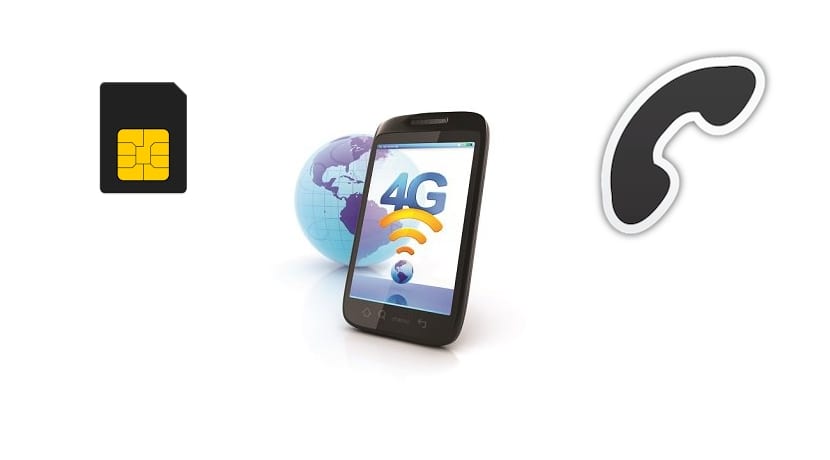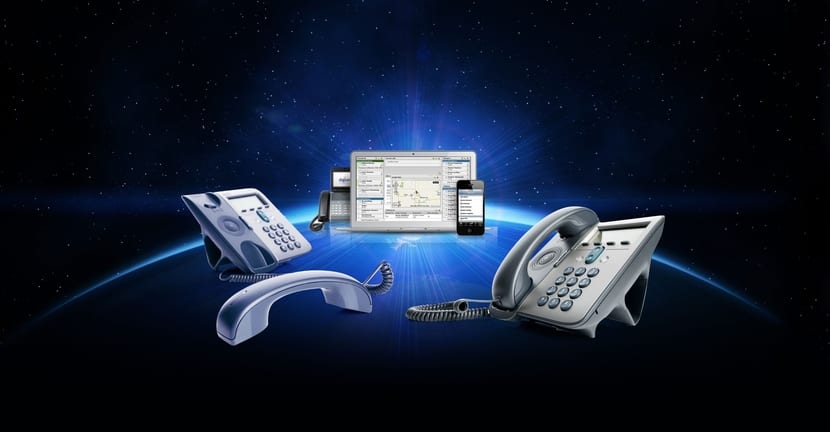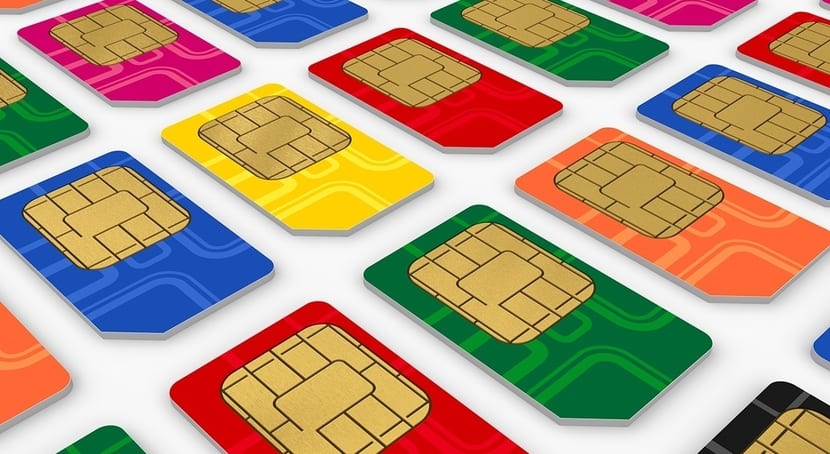
This may not seem like a suitable article for this blog, but now you will see how the Internet 4G, wireless internet, international calls, SIM cards and smartphones have a lot to do with the free or open source world. In this post we will try to introduce you to the other side of these technologies, the more open and alternative side that they have but that you still don't know as well as the commercial one.
In short, the topics that we will deal with are of vital importance today, since they all lead us to be connected in our society. That is why here we will talk about some interesting alternatives that will help you improve your privacy and even learn with some quite interesting open source projects ...
4G / LTE Internet:

The first is explain what this 4G is how much we hear. It refers to the fourth generation of mobile telephony technologies based on IP protocol, predecessor of 5G and successor of 3G. Defined by a ITU committee, like the rest of technologies of this type, to estimate the maximum data speed (100Mbit / s in motion and 1Gbit / s in idle) and study the candidate technologies that would be labeled as 4G.
Another word that you may have also heard is LTE (Long Term Evolution), as for example you will have seen labels like 4G LTE. LTE is a protocol under the 3GPP group standard and that can sometimes be confusing, but we will explain the difference. Simply put, LTE adds more speed to a network with "updates." For example, a 4G network can have a download speed of about 80Mbps while if LTE is added to that 4G, then we can get up to 300Mbps of download in LTE category 5.
Now that we know more or less what each term is, we are going to talk about some gadgets or open software to take advantage of these technologies. An example is OpenLTE, an open implementation of the 3GPP LTE specifications to work with LTE signals based on another free project called GNU Radio. This way we will have more open LTE communications thanks to the architect of openLTE, Fabrice Bellard (who you may know from having created other projects such as ffmpeg, QEMU, the Linux virtual machine on javascript, etc).
For those who do not know GNURadio, to say that it is another open tool that provides signal processing blocks to implement software radio systems. With the proper RF (Radio Frequency) hardware, you can implement a functional communications system or simply use GNU Radio to perform communications simulations. GNU Radio uses USRP (Universal Software Radio Peripheral) as a computerized transceiver with A / D, D / A converters, etc.
Wireless Internet (wireless):

Aside from drivers for open source network cards and wireless devices, there are also other interesting projects. OpenWireless.org it is an example of a movement that aims to create a future of the Internet that is totally open and everywhere. Something like what the genius Elon Musk (creator of PayPal, SpaceX, Tesla Motros, etc.) wants to create, who intends to launch an ambitious project to put 4000 small satellites into orbit and provide coverage anywhere in the world. You may also be interested in other websites such as MyopenRouter.com, where you will find a lot of info about routers and firmware.
And we can't forget such great projects as Open Mesh, which allows you to create and deploy cheap and easy professional WiFI networks. Thus, for example, we can expand our wireless coverage area by enabling access points within the existing area. Undoubtedly interesting for the domestic environment and also for the business, with the flexibility and cost savings that open projects entail.
Also not forget OpenWrt, a Linux distro for network devices such as routers (also on P2P nodes, file servers, Webcam servers, firewall and VPN gateways). Routers are like small computers dedicated to managing network traffic, so they need elements such as a microprocessor, memory, I / O, and of course an embedded operating system. Under the GPL license, it was promoted so that the manufacturers of routers released their codes and little by little it has grown to become professional.
OpenWISP is another open platform to implement a complete WiFi service. To do this, OpenWISP is a complete software suite that includes 5 main apps, as well as drivers, derived from those used in Italy and other European countries to offer public WiFi services. You may also be interested in knowing more about OpenWISP such as OpenWUMS, OpenWM and OpenWF, OpenWRT, OpenWGM, OpenWCPM and OpenWMW.
International calls

It is not necessary to explain what the International calls, but I would like to explain something about VoIP. Many of you will already know this technology very well, but for those of you who do not know it, VoIP (Voice over IP) It is a set of resources for voice calls over the Internet over the IP protocol. That is to say, the voice will travel in the form of digital data packets instead of doing it in an analog way as in conventional telephones, and instead of doing it over a telephone network, it will do so over the Internet.
VoIP has been an evolution and commercial implementation of the experimental network that used this same technology and that was invented by ARPANET in 1973. But one should not confuse IP telephony (very widespread lately) with VoIP. The basic difference is that VoIP does not need phone numbers, but IP telephonyAlthough it uses VoIP technology, it also uses E.164 numbers.
Well, to perform national and international calls by VoIP, you will know that there are many open source projects for this. But I would like to highlight two of them: Antartec and Linphone. Although there are many more for Linux. You are free to use whatever you want. Remember that Microsoft's Skype is also available, although I prefer other free alternatives such as Empathy, Ekiga, KDE Softphones, etc.
SIM cards: dangers and alternatives

All the SIM cards they could have a separate article to talk at length about them. But to say that SIM is the acronym for Subscriber Identity Module. A card that exists in SIM, microSIM, nanoSIM and embedded SIM formats, and whose function is to “securely” store the subscriber's service key to identify themselves on the network, although it can also store the PIN code in its memory and telephone numbers from our directory as you may already know.
Before the latest revelations by Edward Snowden and to reinforce its security, Apple launched an alternative, programmable SIM cards or Soft SIM for its devices, that is, SIMs that could be recorded by software and re-recorded whenever you want without having to change them.
Of course, do not forget that there are open source projects around SIM cards. As open hardware to read SIM cards and use in projects with Arduino, etc., as well as AnySIM, a software that is now open source and that allows to use any SIM card in iPhone devices. In addition to other interesting projects such as Open SIM Kit, to modify the information of the SIM cards and modify some of their functionalities.
IoT projects: the Internet of things

And it would not be fair to end this article without talking about the IoT or the Internet of things how fashionable it is. As you know, the change from IPv4 to IPv6 has brought an endless number of IPs removing the limitations of IPv4, which has ended in a fashion where manufacturers want to take advantage of this new mine to connect almost any device to the network, from your TV, a wearable, an appliance, connected cars, toys, etc.
And in this world of IoT there are plenty of free and open source projects, both software and hardware. Projects such as Arduino and other clones, as well as SBC boards such as the Raspberry Pi, have jumped on the IoT bandwagon, as well as other projects such as mangOH of open-source hardware for the IoT, protocols, software, initiatives, foundations, ... Therefore the list here would be endless, but I would like to highlight:
- mangoOH
- Kaa
- Kura
- thinger
- OpenRemote
- All Seen Alliance
- Open Interconnect Consortium
- COMPOSE
- Eclipse
- OSHWA
- AMQP
I hope you liked it at least to guide you in this world that we use daily but that we do not know so much, at least for my part. Any contribution, suggestion or criticism will be welcome. Leave your comments ...
Definitely the future is here, and companies have been the main participant in terms of technological drive we mean.
But, as we are in the future ... users have technological access more than before, much more. This is what has allowed to create free hardware, something unthinkable a few years ago.
We will soon see printers and processors as garage projects.